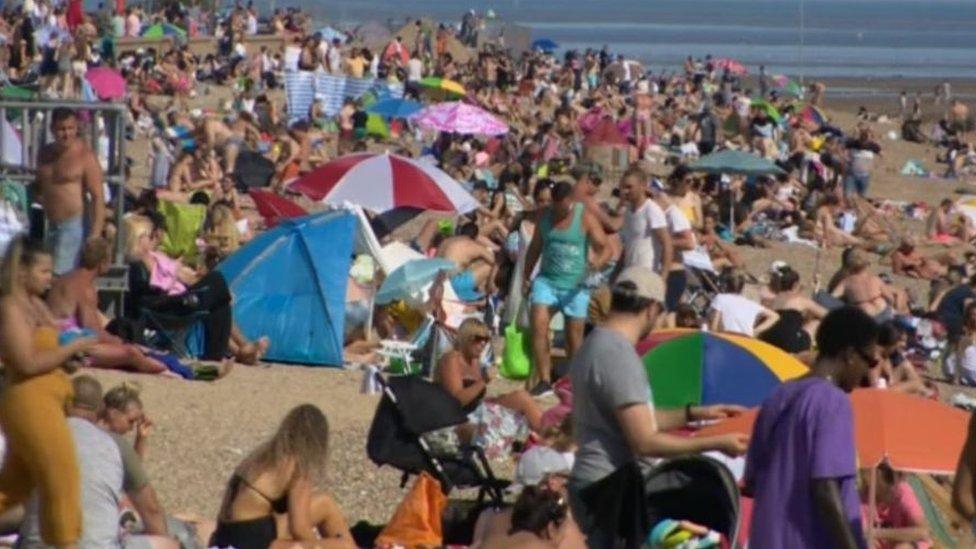Coronavirus: 'The sheer amount of beach rubbish is colossal'
- Published
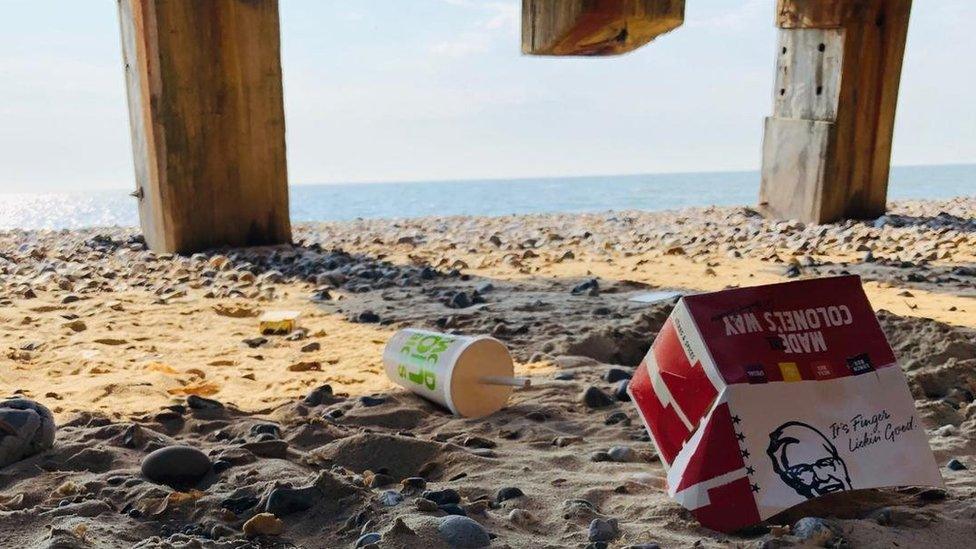
Much of the litter left behind on Great Yarmouth beach is polystyrene cups and burger cartons
After the hottest day of the year saw thousands of people descend on beaches around the UK, the BBC went to Great Yarmouth to see the scale of the mess left behind.
The refuse collector's cart is overflowing. There's the usual drinks cans and plastic bottles, but also a crumpled hat, a paperback book and, balanced on top, a wind break.
"It's as if people have gone slightly mad with lockdown easing," says Penny Carpenter, as she helps pick up rubbish along Great Yarmouth beach.
"I mean - dirty nappies, what's that all about? It's beyond my comprehension, why people do it.
"The word 'unprecedented' is used a lot at the moment, but it is an unprecedented amount of rubbish our teams are picking up."
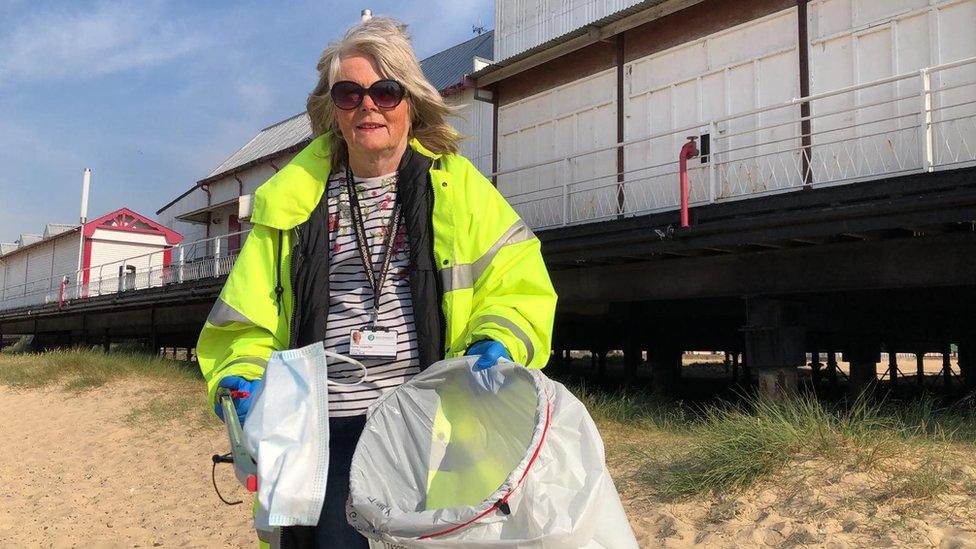
Penny Carpenter said the situation was "heartbreaking"
With cafes and restaurants only open for takeaways, much of the litter is polystyrene cups and burger cartons, plastic bottles and cans. Rubbish bins have been filling up quicker than they can be emptied.
Ms Carpenter said in the 16 years she has lived in the coastal town, she has never seen anything like the amount of litter left in recent days - not even in the summer holidays or after major events.
"It's a significant increase - we usually fill four or five bags - a massive amount - but yesterday it was 15. It's mind-blowing.
"We want people to come to Great Yarmouth but, please, think about what you are doing, you are polluting the environment."
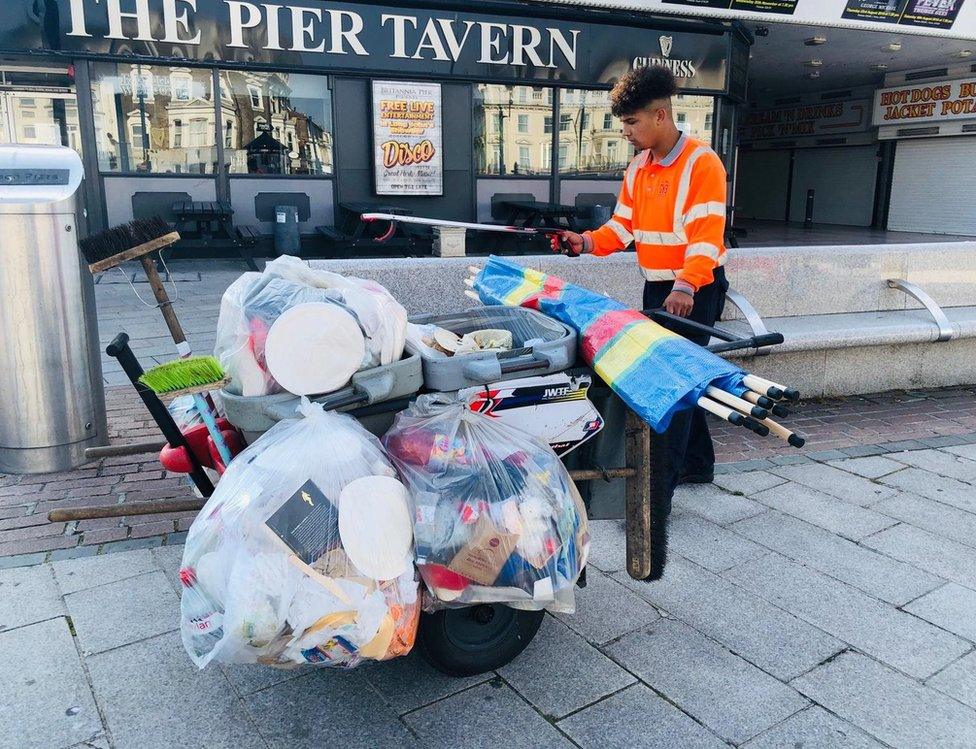
Villiam Koky is one of 15 workers scouring the beach for litter for three hours
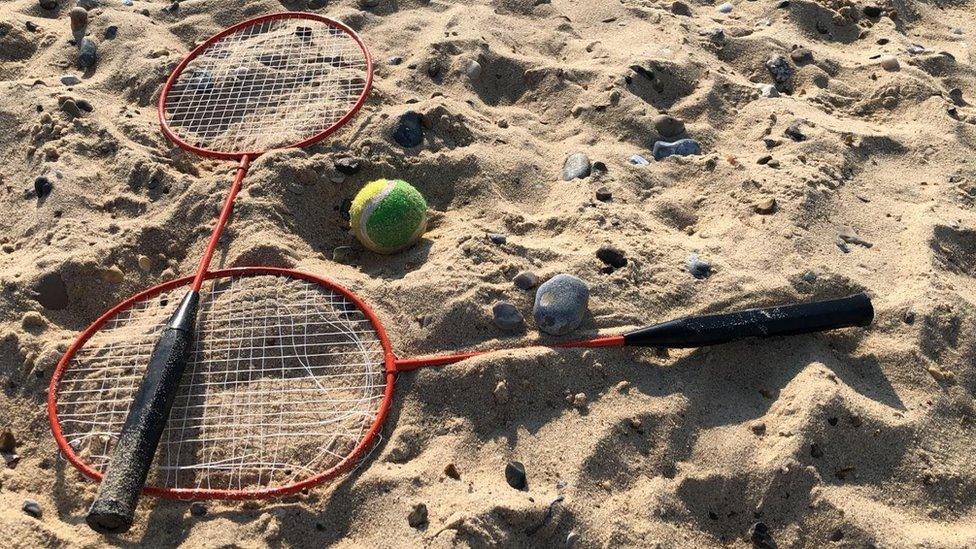
It took the team three hours to scour the seafront, with the Golden Mile between the two piers worst-hit
Great Yarmouth Borough Council, where Ms Carpenter is a Conservative councillor and chairman of the environment committee, has had to pull staff from other services to help with the clean-up since lockdown has eased.
It takes 15 litter-pickers three hours to scour the seafront, with the Golden Mile between the two piers worst-hit.
They find broken glass, a bed sheet, face masks, disposable gloves, a table tennis bat, the string and handle from a kite, a broken camping chair and candles from a birthday cake.
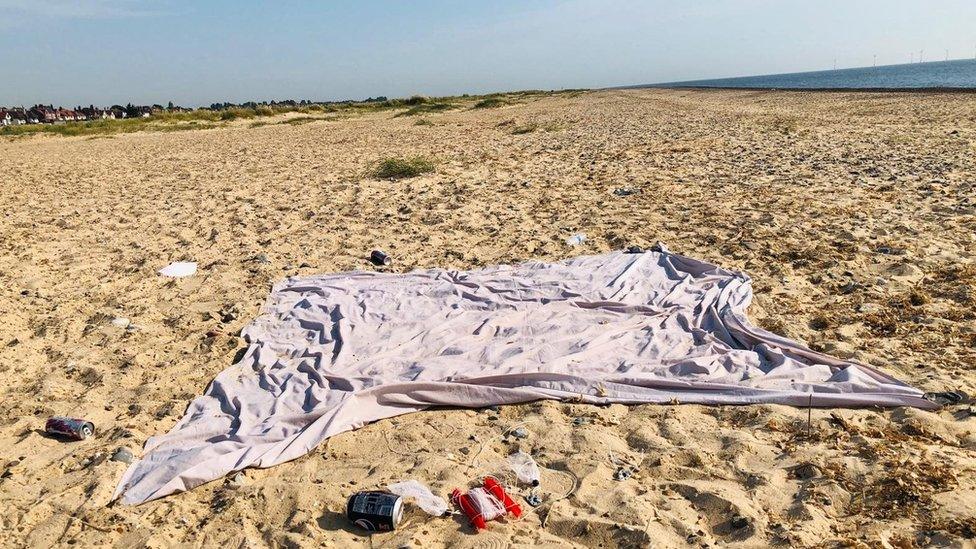
Among the things left behind was a bed sheet
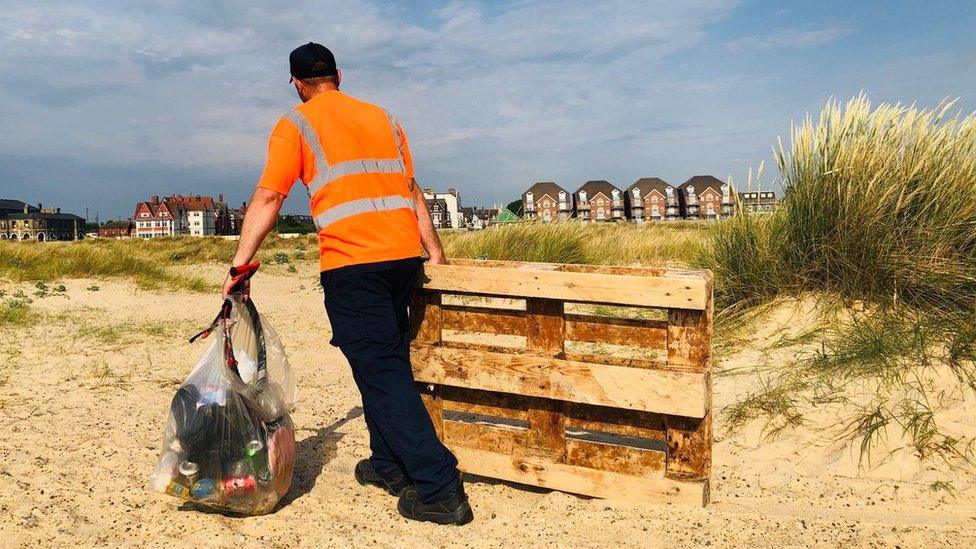
The beach was "absolutely covered", said one resident walking his dog
Resident James Carr heads to the beach most mornings, early enough to see the ugly fall-out from the day - or night - before.
"Yesterday was particularly bad, there were eight beach towels floating around, plastic bottles every where and three five-gallon plastic beer buckets - I think there had been some kind of party.
"The beach was absolutely covered, with beer bottles, plastic rubbish everywhere. I don't think I've ever seen so much."
The 61-year-old said he had seen a "dramatic increase" since the easing of lockdown restrictions, and, like Ms Carpenter, believes the amount of litter goes beyond the levels usually seen during the height of the season.

James Carr said the impact on wildlife was "very sad"
"It's definitely worse than when Yarmouth is packed. There's less people, but those that are here are leaving everything behind," said Mr Carr.
"It's annoying - [you would] think would respect the sea and the environment, but they're abusing it."
The area normally attracts a lot of wildlife; a colony of little terns flies thousands of miles to nest at North Denes each June and there is a large seal population.
Volunteers have seen a record year for injuries to the marine mammals because of litter.
"We see seals most mornings but we haven't for a while and I wonder if they're keeping away, and there are rare birds in the dunes and that's full of rubbish as well," added Mr Carr.
"It's going to affect them all. It's very sad."
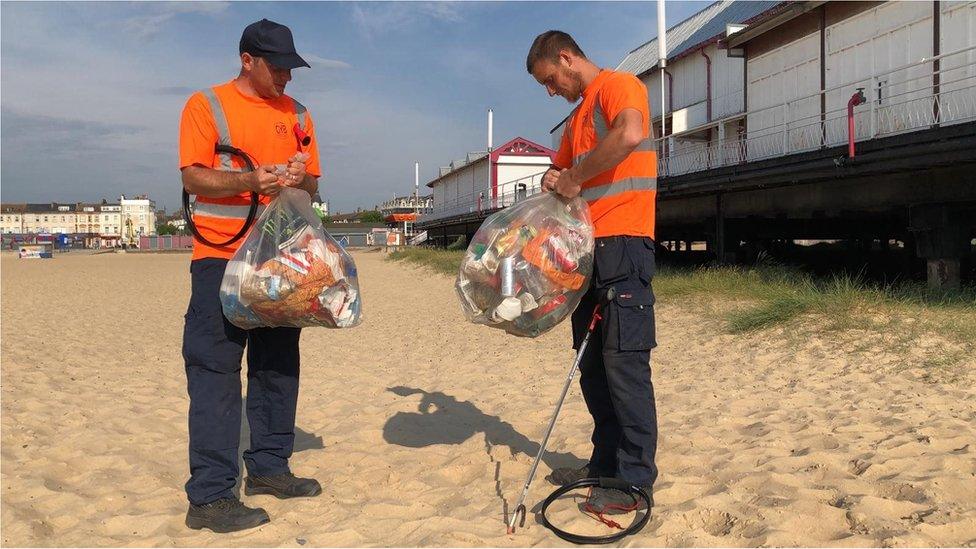
Litter pickers filled bags upon bags of rubbish
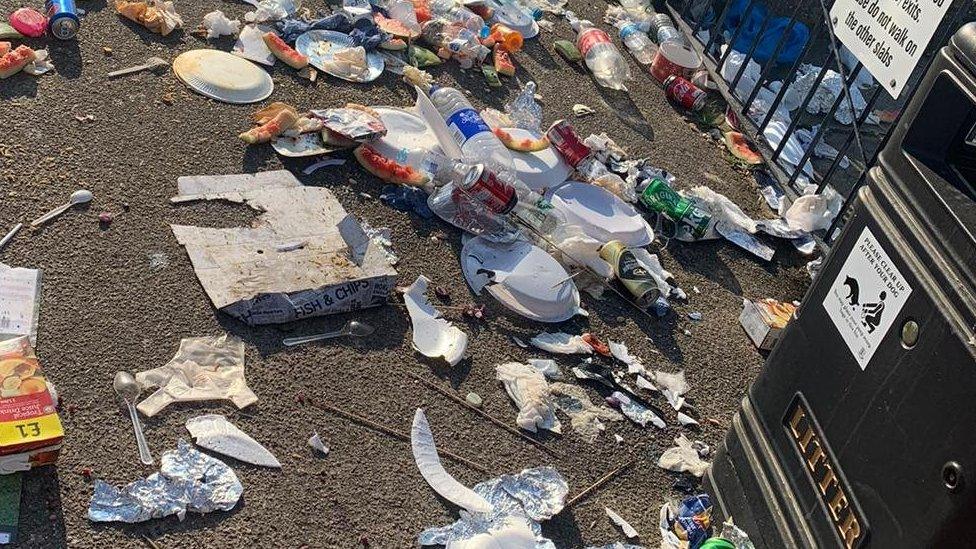
There are more than 30 bins beside Great Yarmouth beach
Mark Wyton is well-acquainted with litter in his role as refuse and cleaning supervisor for the council's contractor GYB Services, but the tidal wave of debris produced by a day at the beach has given him pause.
"The sheer amount of rubbish we're getting is colossal," he said. "We've never picked up as much rubbish as we did on Thursday.
"A year ago, people were much more conscientious about the plastics in the ocean, it seems like we've come out of the pandemic and people have forgotten about it."
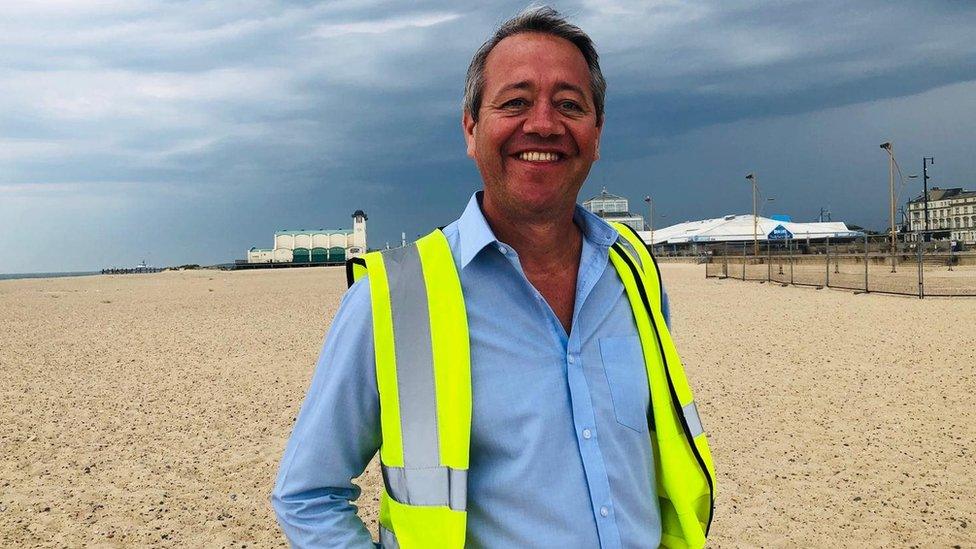
Mark Wyton said it seemed people had forgotten about the problem of plastics in the ocean
This is not just a Great Yarmouth problem.
On Thursday, Bournemouth, Christchurch and Poole Council (BCP) declared a major incident, external in which crews were abused for attempting to empty overflowing bins on the seafront.
The council said 33 tonnes of waste was cleaned up along the Dorset coastline on Thursday morning, in addition to eight tonnes collected between the piers on Wednesday during a second collection that day.
According to the Local Environment Quality survey, the amount of litter UK-wide has remained consistent. Last year, littering of food and soft drinks went up, while dog fouling and plastic bags declined - the latter after the 5p charge was introduced in England.
Australia and the Netherlands include education and engagement with young people as part of a strategic approach to tackling litter. In Japan, littering is called "illegal dumping" and carries a penalty of up to five years in prison or a fine of up to 10 million yen (£75,100).
"Littering is symptomatic of a decline in respect for the environment and for other people," said John Read, founder of Clean Up Britain, which is auditing England's 330 councils to establish whether they undertake litter enforcement and, if so, exactly how many fines they issue.
"Too many people are disrespectful because councils are weak - and they get away with it. We have the filthiest country - but it's part of British culture, this sense of entitlement.
"There is a huge cultural fracture in our society, with anti-social behaviour and littering, where there are no penalties."
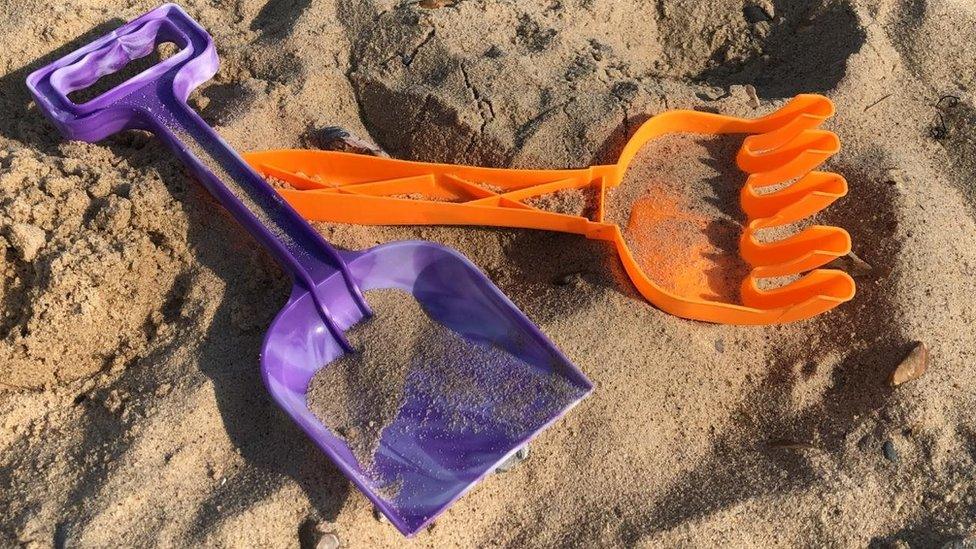
People also left toys, camping chairs and nappies on the sand
Back in Great Yarmouth, there are more than 30 bins beside the beach, including three news bins in the largest 1,100-litre size, but these are still not enough.
A bin next to the pristine bowling green, just a few steps from the prom, is surrounded by a mass of half-eaten food, fish and chip boxes, disposable cutlery and bottles.
Every plastic fork, every chewed slice of watermelon, every dirty nappy, has disappeared in time for the next surge of visitors. The wide expanse of sand is once again restored to its natural beauty - for now.
"It's heartbreaking," said Ms Carpenter. "We are proud of where we live, we are proud of our town.
"This will be repeated tomorrow and the next day and the next day."
Find BBC News East of England on Facebook, external, Instagram, external and Twitter, external. If you have a story suggestion email eastofenglandnews@bbc.co.uk, external
- Published25 June 2020
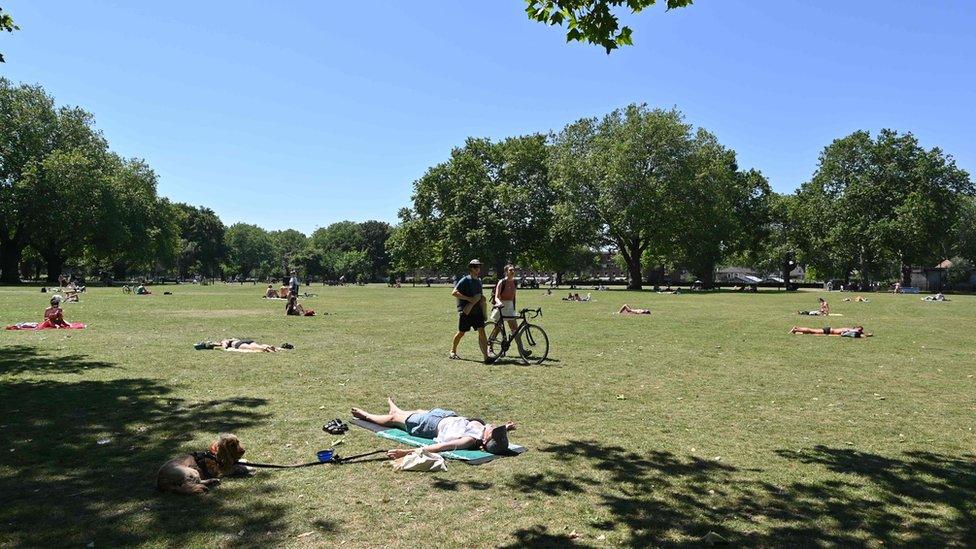
- Published25 June 2020
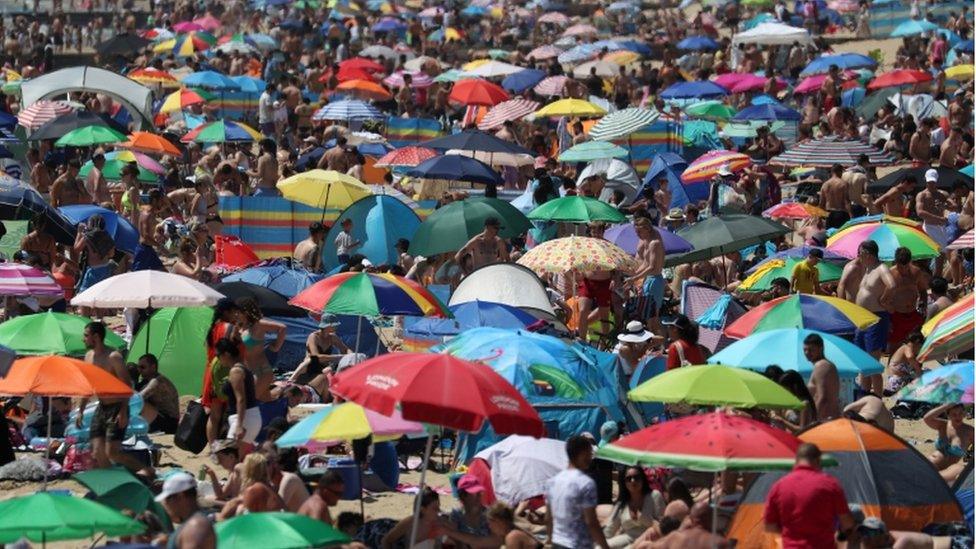
- Published25 June 2020
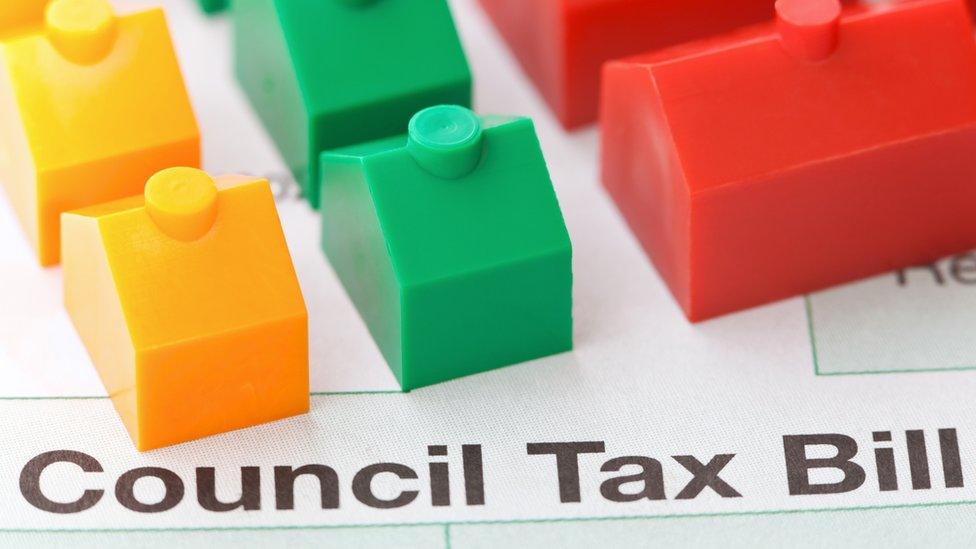
- Published10 June 2020
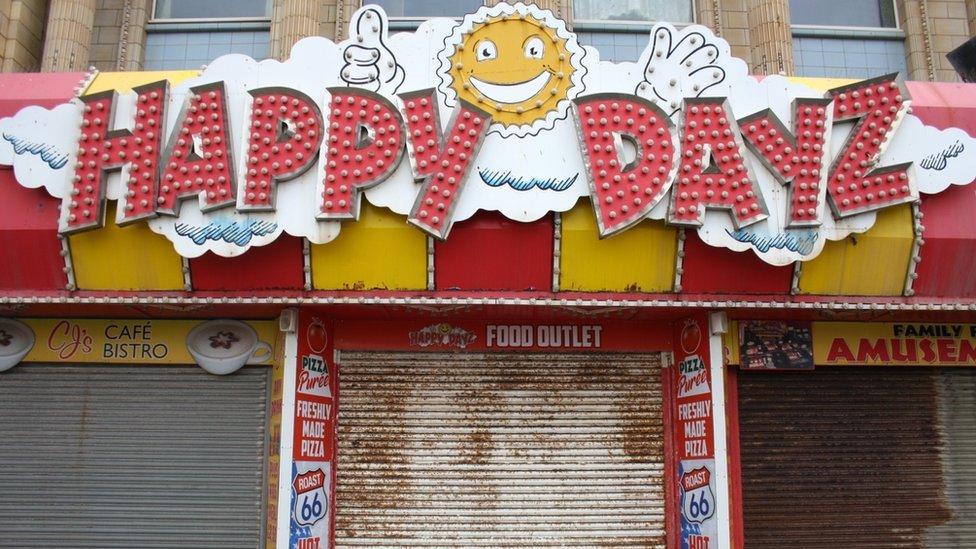
- Published21 May 2020
